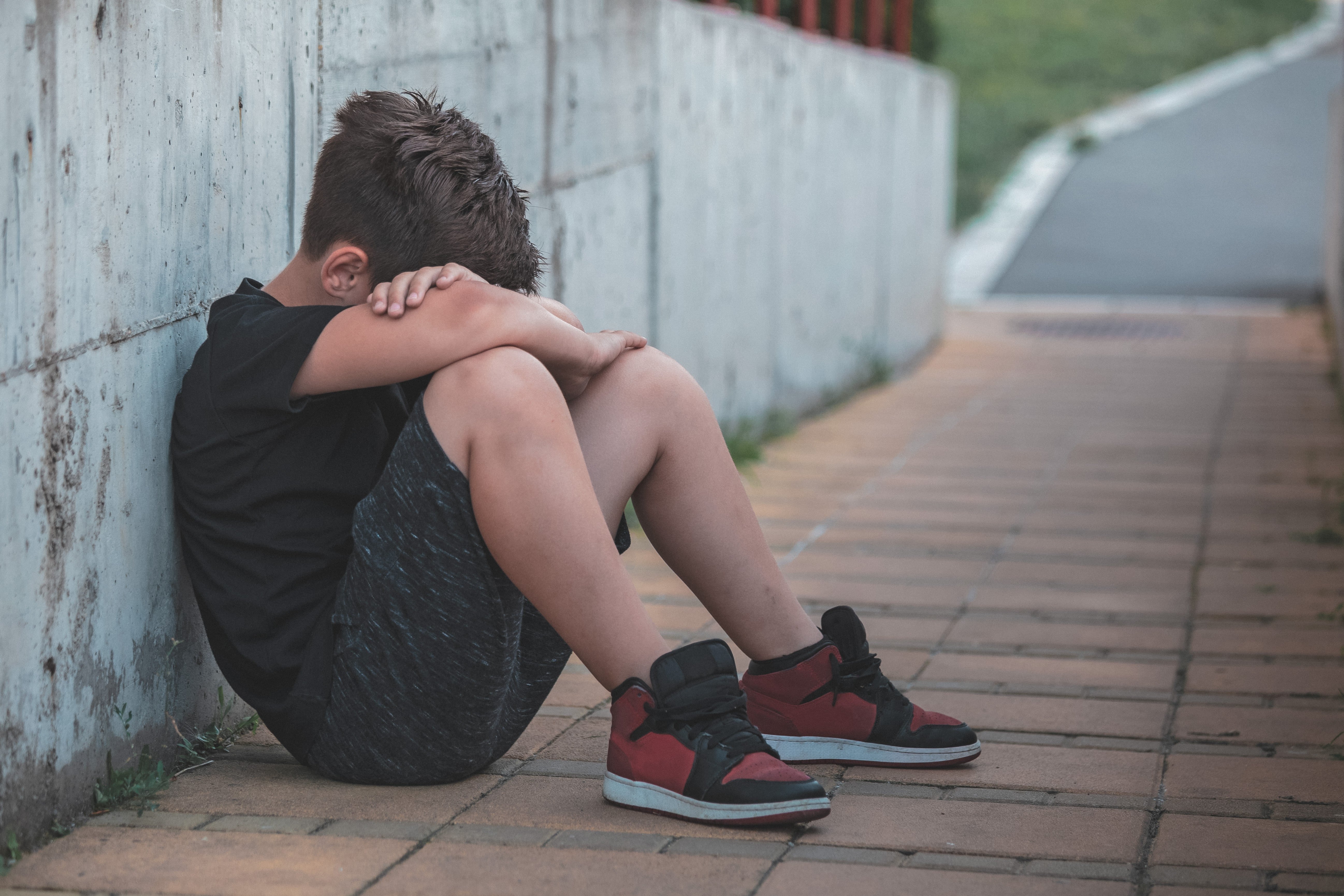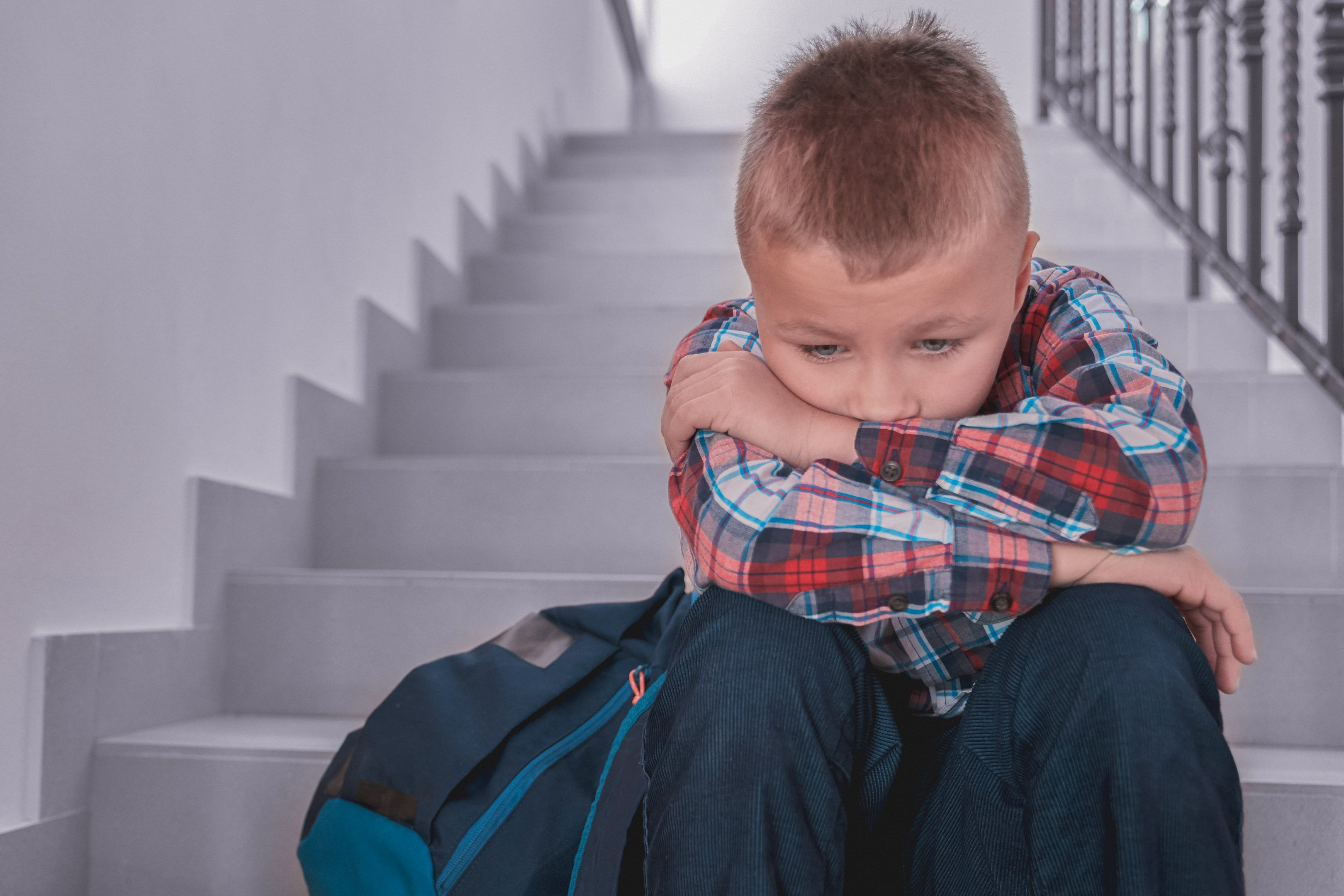Essential Guide: How to Talk to Your Kids About Bullying
Equip yourself with 7 essential tips to effectively discuss bullying with your kids. Read on to foster open communication and support their well-being.



Many parents worry about their child being bullied, and for good reason. Data show that approximately one in five 12-18-year-olds has reported being bullied at school in the past year. Bullying often starts even earlier, with research finding that bullying behaviors are happening even among children ages 9-11 years.
While these numbers are alarming, knowing how to talk to kids about bullying can make a meaningful difference in the way they handle conflict. This article discusses the mental health effects of bullying, plus advice on how to support children who show signs of being bullied or bullying others.
Key takeaways
- Bullying can cause mental health challenges in children and teens, including anxiety, depression, and low self-worth.
- Knowing how to talk to kids about bullying can help improve their resilience and mental well-being.
- Evidence based techniques such as CBT can help children learn to regulate their emotions, cope with challenging situations, and develop meaningful relationships with others.
How to talk to kids about bullying

Bullying is an important topic for families to discuss, regardless of your child’s age. Here are five suggestions for having proactive and impactful conversations.
1. Share what you know
Some children may be hesitant to discuss bullying with their parents, so start the conversation for them. You can do this by bringing up a recent bullying event at their school or sharing a personal experience from your own childhood.
2. Discuss what bullying means
There are six categories of bullying:
- Relational: Bullying that targets a person’s reputation or relationships
- Verbal: Using words to cause emotional harm
- Physical: Causing physical harm to a person or their possessions
- Gender-based: Targeting someone based on their gender identity or sexual orientation
- Retaliatory: Bullying that is the result of being bullied
- Cyberbullying: Using technology to threaten, embarrass, or harm another person
While your child probably knows that hitting and name-calling aren’t acceptable behaviors, they may be less informed about the other categories. For example, they may not know they should not exclude classmates, make sexual jokes, or post photos of people without their permission.
3. Brainstorm possible responses
Bullies can be intimidating, so help your child decide how they’ll react to uncomfortable situations. For example, you can encourage them to walk away and find a trusted adult. If they’re tempted to engage, opt for something non-confrontational like: "Please stop. I don't like that.”
4. See something, say something
Encourage your child to speak up the next time they experience or witness bullying. Even if they’re not directly involved, they can still ask a parent, teacher, or other trusted adult for help.
5. Remind them it's not their fault
It's normal for kids to feel scared or ashamed of being bullied. They might even be worried that they'll get in trouble for talking about it. Reassure your child that they've done nothing wrong and that you're always there to support them.
How bullying impacts your child's behavior

According to the Centers for Disease Control and Prevention (CDC), bullying is any unwanted or aggressive behavior between youth. It typically involves some sort of power imbalance and is likely to occur more than once. Bullying can happen anywhere, but it’s common in and around schools, such as the playground, school bathrooms, and bus stops. Bullying can also occur via the internet, which is known as cyberbullying.
It's not always obvious when a child is involved in bullying. While some kids are in the habit of sharing their days over dinner or during bedtime, others are more likely to keep their feelings and experiences to themselves. Learning about the warning signs of bullying can help you recognize any concerns and take the appropriate next steps to support your child.
Possible signs that your child is getting bullied include:
- Reduced confidence or self-esteem
- Complaining of frequent headaches, stomach aches, or feeling unwell
- Sudden disinterest in school, including declining grades and skipping extracurriculars
- Lost or destroyed property, such as books, electronics, and clothing
- Changes in eating or sleeping habits
Possible signs that your child is engaged in bullying behavior:
- They spend time with friends who bully others
- They're acting angrier or more aggressively than usual
- They refuse to accept responsibility for their behavior
- They're frequently called to the principal’s office or sent to detention
- They have unexplained money or new belongings
The mental health effects of bullying
Bullying can increase the risk of mental health and behavioral problems in children and teens. Youth who experience bullying often struggle with feelings like anger, shame, and low self-worth. This can contribute to an increased risk of mental health concerns, such as:
- Depression
- Anxiety
- Substance use problems
- Suicidal thoughts
It’s also worth noting that teens who experience peer aggression, such as fighting or threats, may be more likely to bring weapons to school.
On the flip side, youth who bully others can also experience emotional distress. Bullying might be a response to something going on in that child's life, including undiagnosed depression, oppositional defiant disorder, or emotional dysregulation issues.
What to do if your child is bullying other kids
While it’s heartbreaking to see your child experience the effects of bullying, learning that your child is bullying others can be just as upsetting. If your child has acted in an unkind way, there’s a good chance that you’ll hear about it from a teacher, fellow parent, or even through online communities. Here are four tips to have a calm and effective conversation about bullying with your child.
1. Start the conversation
Before jumping to any conclusions, make an effort to keep an open mind. Find a quiet moment, take a deep breath, and start the conversation with something like: “I was told that you were involved in a bullying incident. It’s important that we talk about this, so can you tell me what happened in your own words?”
2. Listen to their point of view
Being involved in bullying doesn’t make your child a bad kid, so try to understand their perspective without judgment. There are several common reasons why a child might engage in bullying behavior. For example, they might be seeking attention, trying to fit in with friends, or being bullied themselves. In some cases, they may not even realize how their behavior affects others.
3. Create meaningful consequences
Consequences are an opportunity to help your child learn and grow. When creating consequences, make sure they’re logical, consistent, and include positive reinforcement. Choose something that relates to the behavior, such as an apology note to the person they hurt or loss of phone privileges if the bullying was done online. Try to follow through on your consequences, and acknowledge any positive changes in their behavior.
4. Model empathy and kindness
Help your child understand the way their actions impact others. When you model kindness and respect at home, they may reconsider how they approach their classmates at school. For example, you can use a respectful tone with your partner and apologize when you overreact. You can also recognize positive moments, such as: “I saw that you said goodbye to the new student after school. That was very thoughtful of you.”
Supporting children who are being bullied
Knowing that your child is being bullied can be frustrating, scary, and overwhelming. While you can’t control the way others behave toward your child, you can prepare your child to handle difficult situations.
One way to support your child is to help them cultivate resilience. This skill is essential to overcoming challenges and protecting against depression. You can also discuss healthy ways to manage their stress, such as drawing, journaling, and meditating.
If your child is being bullied at school, it’s also a good idea to involve school staff for additional resources and support. Your child’s teachers, principal, counselor, and even school nurse can all play an important role in addressing the situation and your child’s well-being.
How Emora Health can help your child cope with bullying

No parent wants to see their child involved in bullying, but if it does impact your home, talking about bullying is an important first step in protecting their mental health and well-being. If it seems like your child might benefit from professional support, know that Emora Health is here to help.
Emora Health connects children, teens, and young adults with licensed behavioral experts, including therapists, psychologists, and psychiatric clinicians. They’re trained in evidence-based treatments, including behavioral therapy, CBT, parent training, and social skills training, to help young people cope with challenging situations.
Learn more about Emora Health and get started today.





